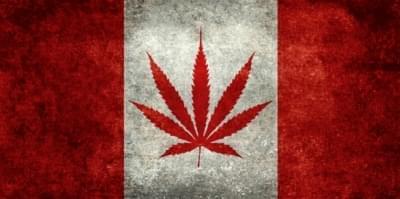.

Where In The World Is CBD Legal in 2021?
Can you buy CBD legally in your own country? While most people can pick up CBD oil and other products without any trouble, the laws surrounding the cannabinoid change between nations. Switzerland and Poland boast some of the most liberal CBD laws in the world, whereas Portugal makes it much harder to purchase CBD products.
Contents:
- Is cbd oil legal in spain?
- Is cbd oil legal in france?
- Is cbd oil legal in the netherlands?
- Is cbd oil legal in germany?
- Is cbd oil legal in italy?
- Is cbd oil legal in uk?
- Is cbd oil legal in portugal?
- Is cbd oil legal in poland?
- Is cbd oil legal in switzerland?
- Is cbd oil legal in czech republic?
- Is cbd oil legal in united states?
- Is cbd oil legal in canada?
Cannabis has a long and controversial history. Its psychoactive nature has led to bouts of prohibition and many legal battles. But now, many governments around the world are releasing restrictions on the herb.
So, where does CBD fit into the picture? As a non-psychoactive cannabinoid, it makes logical sense that products such as CBD oil should be freely available everywhere.
Unfortunately, the legal status of CBD oil remains complex and changes drastically from country to country. A lot of red tape surrounds CBD products, and regulations in many nations require manufacturers to stay below certain THC thresholds.
Explore the legal situation of CBD in some of the major European countries below, as well as the North American nations.
Is CBD Oil Legal in Spain?
| CBD Friendliness |
| CBD Friendliness |
Yes and no. Before January 2019, customers could purchase a wide variety of CBD products. However, the Novel Food Regulation caused some drastic changes in the legal status of CBD in Spain.
The EU Novel Food Catalog[1] defines novel food as any food that hasn’t been significantly consumed by Europeans before May 15th, 1997. Companies that sell items within the catalog, including CBD oil, face restrictions when it comes to marketing.
EU member states aren’t forced to abide by the Novel Food Regulation, but can freely choose to adopt. The Spanish government decided to implement this guidance, which resulted in hard-hitting restrictions across the CBD market.
The Spanish Agency for Food Security and Nutrition (AECOSAN) and the Ministry of Health demanded that all companies cease the sale and marketing of CBD products for human consumption. AECOSAN has also prohibited the use of online sales of products marketed as “health foods”.
Suddenly, companies had to remove all ingestible CBD products from Spanish shelves, including CBD oils, capsules, tinctures, and other supplements.
However, companies in Spain can market their products for “external use”, so CBD cosmetics and topicals remain available CBD products in the country. Those interested in CBD cosmetics can purchase them over the counter in health stores and online outlets.
Although Spanish citizens can’t purchase CBD oil from their favorite suppliers, they can grow cannabis at home. Adults can cultivate plants, including high-CBD varieties, in private spaces. And those who don’t want to grow can also purchase buds at registered cannabis clubs in cities such as Barcelona, Madrid, and Valencia.
The commercial cultivation of hemp remains legal in Spain, considering that farmers sow EU-certified varieties with less than 0.2% THC, and only for fibre and seed production. For farmers to grow hemp for CBD extraction, they must obtain a license from the Spanish Agency for Medicines and Health Products (AEMPS).

Is CBD Oil Legal in France?
| CBD Friendliness |
| CBD Friendliness |
France also has a muddled relationship with CBD. Regulations in the country state that hemp-derived products should maintain THC quantities of 0%. However, the Interministerial Mission Against Drugs and Addictive Behaviour (MILDECA) permit CBD products with a THC content of 0.2% or less.
This seemingly bizarre and confusing gray area has led to several legal cases and some striking headlines. In one instance, two entrepreneurs from Marseille were handed suspended jail time and a €10,000 fine for selling CBD-based e-cigarettes.
Their products contained less than 0.2% THC. However, they imported products from the Czech Republic extracted from flowers and leaves. Because French law only allows CBD extracted from seeds and fibres, the correctional court in Marseille found them guilty.
However, the European Court of Justice later ruled the French ban on CBD as illegal. The court stated, by banning the marketing of hemp-derived CBD products, the French court contradicted EU law on the movement of goods. The court also added that the UN conventions regarding illegal drugs do not mention CBD.
For now, French citizens can purchase CBD oil and other products, so long as they derive from hemp plants that contain no more than 0.2% CBD. These products are available from many online outlets and health stores. Yet the laws still remain confusing and frustrating.
Companies can market CBD products, as long as they stay within these boundaries[2]:
- Do not claim therapeutic benefits, unless authorized by the National Agency for the Safety of Medicines and Health Products
- Advertisements should not confuse CBD with cannabis or promote cannabis
In early 2021, the French National Assembly published its “Well-being Hemp”[3] report that seeks to clarify and improve regulations surrounding the plant. The document put across a total of 20 proposals, including:
- Use all parts of the hemp plant for industrial and commercial purposes, including the flowers
- Define a threshold between 0.6% and 1% of THC in authorized French hemp crops
- Renounce maintaining the threshold of 0% THC in finished products including liquids, cosmetics, and foods
Is CBD Oil Legal in The Netherlands?
| CBD Friendliness |
| CBD Friendliness |
The Netherlands has gained a reputation as the cannabis hot spot in Europe. Millions of tourists visit the capital every year to sample the flowers and edibles available in the world-famous coffeeshops.
Despite what seems like a lenient attitude, cannabis remains illegal. Coffee stores are allowed to sell small amounts of soft drugs such as cannabis, but the sale and possession of all drugs remain outlawed[4].
So, where does CBD fit into the picture? Even though you can stroll into a coffee store and purchase a fat joint, CBD shares similar restrictions to other European nations.
CBD oil falls under the Opium Act in the country and remains illegal under this legislation[5] because:
- CBD oil complies with the definition of hemp-oil
- It contains trace levels of THC
However, the Opium Act also protects CBD from the rules of the EU Novel Food regulation. Therefore, companies can market and sell CBD oil, as long as they stay within these rules:
- CBD oils do not contain more than 0.05% THC
- CBD oil derives from EU permitted industrial hemp strains
- Marketing material contains no medical claims
- No health claims
- A maximum daily dose recommendation of 160 mg of CBD
If you’re shopping for CBD oil in the Netherlands, you’ll find many options available in cannabis-themed head stores, coffee stores, and health and supplement stores.
Is CBD Oil Legal in Germany?
| CBD Friendliness |
| CBD Friendliness |
Germany boasts slightly more simple and relaxed CBD laws. Citizens can purchase a wide array of CBD products from health stores. These outlets sell oils, capsules, topicals, cosmetics, and other CBD-based preparations.
German citizens can also buy CBD perfectly legally from a range of online stores. However, all of the legal CBD products in Germany must clock in at a THC content of less than 0.2%.
However, like Spain, Germany also invited the changes instigated by the Novel Food Regulation. As well as changing the way companies can market CBD, the German government has also banned the sale of CBD edibles.
This friendlier approach to CBD comes as no real surprise. Germany nudged cannabis closer to legalisation in Europe during March 2017, when the government passed legislation that gave the green light for doctors to prescribe cannabis-based drugs, including cannabis flowers, extracts, and individual cannabinoids.
Is CBD Oil Legal in Italy?
| CBD Friendliness |
| CBD Friendliness |
If you thought we passed all of the countries with dodgy CBD laws, you were wrong! Italians can store for CBD, but the country has some of the most confusing CBD laws on the continent.
If you’re looking to buy CBD oil in Italy, rest assured that you can access it. However, a legal gray area does surround CBD products. Although the country allows triple the THC content of its European neighbors (0.06%), many companies opt to remain below 0.2% to avoid any trouble with the authorities.
The Italian government currently have no proper regulation surrounding CBD. The cannabinoid doesn’t appear on the official table of drugs. Therefore, the rules that govern medical products that contain psychoactive substances, such as THC, do not apply to CBD.
When it comes to food and food supplements, CBD also faces restrictions imposed by the Novel Food Regulation. On these grounds, companies in Italy cannot use CBD as an ingredient in food supplements.

Manufacturers are also banned from using naturally-derived CBD from hemp flowers. Instead, they are allowed to incorporate CBD derived from hemp seeds and leaves, and synthetic versions of the cannabinoid.
Before 2019, Italy boasted a booming “cannabis light” market. These low-THC products included oils, leaves, and flowers, and businesses started selling them after discovering a loophole in the 2016 legislation[6] that legalised the cultivation of hemp.
However, all of this newfound freedom quickly came to an end when the Supreme Court of Cassation called for the immediate removal of these products from the shelves.
Italy also came dangerously close to tanking its own CBD market in 2020, a perfect example of just how volatile things are with the cannabinoid in Europe. On October 15th, 2020, the Ministry of Health published a decree that ordered the inclusion of CBD on the table of narcotics.
If passed, the legislation would have led to regulations that ban the free sale of all CBD containing extracts and oils. However, officials suspended the decree on October 28th, 2020, stating that the decision requires further scientific evidence.
Is CBD Oil Legal in UK?
| CBD Friendliness |
| CBD Friendliness |
Those living in the United Kingdom can easily access CBD oil in supplement stores, pharmacies and a host of different websites. Like other European nations, CBD products in the UK are subject to a maximum THC limit of 0.2%.
Many high street products remain untested and contain THC levels over the legal limit. Citizens are advised to only purchase CBD products from trusted websites, pharmacies, and stores to avoid any complications.
Companies in the UK can sell CBD products as either food supplements or medicines. The Medicines and Healthcare products Regulatory Agency in the country views CBD used for medicinal purposes as a legitimate medicine.
To sell CBD in this context, companies must obtain a license that ensures certain safety, quality, and efficacy standards.
Is CBD Oil Legal in Portugal?
| CBD Friendliness |
| CBD Friendliness |
After decriminalising all drugs in 2001, Portugal gained notoriety on the world stage for its lenient laws. It makes logical sense that Portugal would also hold a liberal view when it comes to CBD. But this isn’t the case.
CBD laws in Portugal are murky at best. Currently, citizens can only access CBD as prescription medicine in the form of Sativex, a blend of THC and CBD. However, patients can only secure a prescription if they experience the following medical conditions:
- Multiple sclerosis spasticity
- Nausea and vomiting resulting from chemotherapy or therapy for HIV and hepatitis C
- Loss of appetite caused by cancer or AIDS
- Chronic pain
- Tourette syndrome
- Glaucoma
- Epilepsy
Before 2018, Portuguese citizens could easily purchase CBD products over the counter as a food supplement. But legal changes during this year, caused by the EU’s Novel Food Regulation, led the government to ban sales of the cannabinoid.
Furthermore, companies and individuals can only import CBD if they possess an importation certificate from the National Authority for Medicines and Health Products. Despite these restrictions, many people in the country still purchase and use CBD outside of the prescription model. The relaxed drugs laws mean ordering CBD online rarely results in prosecution.
Is CBD Oil Legal in Poland?
| CBD Friendliness |
| CBD Friendliness |
If you live in Poland, you probably find it extremely easy to access CBD. The country proudly holds one of the most liberal CBD policies in the world. Poland’s booming CBD industry works effectively alongside its hemp cultivation efforts, which exploded by almost 80% back in 2018.
The country also took a much more lenient approach following the introduction of the Novel Food Regulation. Unlike a lot of other countries, they refused to ban CBD edibles and beverages. These products include tasty gummies that customers can find both in stores and online.
As long as CBD products stay under the standard 0.2% concentration, companies are free to innovate in ways not possible within other European markets.

Is CBD Oil Legal in Switzerland?
| CBD Friendliness |
| CBD Friendliness |
Switzerland stands next to Poland as one of the most progressive European countries when it comes to CBD laws. Swiss customers can enter health stores and designated CBD outlets to purchase supplements, cosmetics, and even CBD cigarettes. You’ll even find some of these items in petrol stations, convenience stores, and markets.
However, there are a few rules that companies and customers need to abide by:
- Companies cannot make medical claims when advertising
- Customers must be at least 18 years old to purchase any CBD products
Switzerland also boasts incredibly relaxed cultivation laws. Growers don’t need a license, meaning anyone can grow their own hemp plants at home. Additionally, these plants can legally contain anywhere up to 1% THC, a much higher content than the 0.2% seen throughout the rest of Europe.
Citizens are also able to bring their own homegrown flowers to the local market, so long as they adhere to the legal requirements.
Is CBD Oil Legal in Czech Republic?
| CBD Friendliness |
| CBD Friendliness |
If you ever visit Prague, it probably won’t take long before you stumble across a hemp store, CBD club, or seed stores that sell CBD-infused goods.
Czech citizens (and visiting tourists) can easily access CBD products all across the country. You can buy a range of oils, capsules, and other preparations legally. These items must possess a maximum THC content of 0.3%.
These relaxed laws fall in line with the country’s approach to cannabis in general. Although they have a strict approach to recreational cannabis, the Czech government allows medical users to grow weed once they obtain a license.

Is CBD Oil Legal in United States?
| CBD Friendliness |
| CBD Friendliness |
Although legal in all 50 states, CBD laws remain rather confusing in the US. In 2018, President Donald Trump signed the Farm Bill that made hemp and hemp extracts federally legal.
This legislation made a legal distinction between hemp and marijuana. It defines marijuana—a schedule 1 drug—as containing over 0.3% THC. Anything below this threshold is regarded as hemp. The bill ultimately removed hemp extracts and CBD from the Controlled Substances Act[7].
CBD products derived from marijuana remain illegal, yet those made from hemp cultivated by licensed businesses are federally legal for commercial purposes. Customers can find a huge array of CBD products in US outlets, including oils, edibles, and even pet food.
Yet all of these products seem to fly in the face of Food and Drug Administration (FDA) regulation. The organization expresses that companies can sell CBD, but marketing the product as a dietary supplement, food, or animal feed breaks the law[8].
Is CBD Oil Legal in Canada?
| CBD Friendliness |
| CBD Friendliness |
CBD oils are completely legal in Canada, and citizens can freely buy CBD products without a restriction. The country legalised both marijuana and hemp for medical and recreational use back in 2018. Although you won’t struggle to find stores that sell CBD in Canada, companies have to abide by strict regulations to make this possible.
The Cannabis Act[9] lays down the rules and regulations that govern CBD in Canada. It remains a controlled substance, and cultivators looking to grow high-CBD cannabis must acquire a federal license and follow the Cannabis Regulations. Regardless, the CBD market in Canada continues to expand.
Hemp farmers that cultivate plants with a THC content below 0.3% also need a license under the Industrial Hemp Regulations.
Selling CBD products also requires authorization. The only outlets allowed to trade CBD products are:
- Provincially or territorially-authorized cannabis retailers
- Federally-licensed sellers of cannabis for medical purposes
Canada’s CBD market also functions in isolation. You won’t find any popular European or American brands on the shelves there. CBD products are only imported in very rare circumstances mostly relating to scientific research.
- Novel food catalogue https://ec.europa.eu
- Cannabidiol (CBD) le point sur la législation | Mildeca https://www.drogues.gouv.fr
- ASSEMBLÉE NATIONALE https://www2.assemblee-nationale.fr
- Am I committing a criminal offence if I possess, produce or deal in drugs? | Drugs | Government.nl https://www.government.nl
- Cannabinoïden Adviesbureau Nederland https://www.cannabinoidenadviesbureau.nl
- The impact of light cannabis liberalization on prescription drugs https://hempindustrydaily.com
- The Controlled Substances Act https://www.dea.gov
- FDA Regulation of Cannabis and Cannabis-Derived Products, Including Cannabidiol (CBD) | FDA https://www.fda.gov
- Cannabidiol (CBD), and industrial hemp - Canada.ca https://www.canada.ca






































